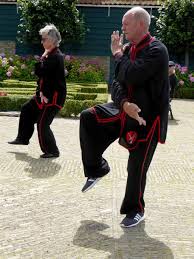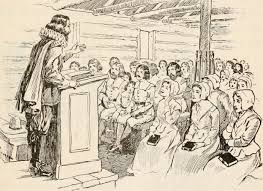I haven’t been blogging since last spring, and even then it was pretty sketchy for a couple of months. Why the melt-down? For one thing, I was on drugs. Uh-huh, it’s true. And I was in pain and fairly miserable. So today’s post is about my own drug use, not anyone else’s. No theories to postulate, no models to spin, nothing very abstract at all. Just a field report: what it was like for an old veteran like me to get back on opiates…then off again.
 Since moving to the Netherlands nine years ago, this was my third — yes third — spinal surgery. You wouldn’t know it. I’m limber, I can do anything from a 2-hour Tai Chi class to a half-day of zip-lining. But my spine has this uncool tendency to grow too much bone, called stenosis. The bone squeezes my nerves, and then I get pain. For example, leg pain. Sciatica.
Since moving to the Netherlands nine years ago, this was my third — yes third — spinal surgery. You wouldn’t know it. I’m limber, I can do anything from a 2-hour Tai Chi class to a half-day of zip-lining. But my spine has this uncool tendency to grow too much bone, called stenosis. The bone squeezes my nerves, and then I get pain. For example, leg pain. Sciatica.
 The MRI confirmed what my nerves were telling me (about my bones). Not enough room in this town for both of us. So a surgery was planned and I asked my doc for some oxycodone — lots of it — or an equivalent. I’m not fond of pain.
The MRI confirmed what my nerves were telling me (about my bones). Not enough room in this town for both of us. So a surgery was planned and I asked my doc for some oxycodone — lots of it — or an equivalent. I’m not fond of pain.
I don’t for a moment think that people who need opiates for bodily pain are more decent, correct, or upstanding than people who need them for psychological pain. (I’ve needed them for both in my life.) It’s a false dichotomy passed down through generations of puritans. Suffering is suffering, and opioids are nature’s first-line  defense. (That’s why your nervous system manufactures buckets of them.) But we’d be foolish to overlook the addictive properties of any drug that makes us feel better — and that part is psychological. In the case of opioids it’s physiological too. (See my debate with Maia Szalavitz in the comment section, last post.) Hence the notorious feedback effect: what you take to reduce your suffering leads to more suffering. Super bad planning!
defense. (That’s why your nervous system manufactures buckets of them.) But we’d be foolish to overlook the addictive properties of any drug that makes us feel better — and that part is psychological. In the case of opioids it’s physiological too. (See my debate with Maia Szalavitz in the comment section, last post.) Hence the notorious feedback effect: what you take to reduce your suffering leads to more suffering. Super bad planning!
Anyway, there I was, feeling no pain — or at least less pain — in both departments. So a couple of weeks after my operation I was faced with the inevitable quandary: did I still need these drugs to control the physical pain…or was I really just starting to crave their psychological embrace, that caress of warmth, as I have in the past?
This is obviously an important question when it comes to treating former addicts with opiate painkillers. The statistics are clear: those with previous drug problems are far more likely to get addicted to opiates prescribed for pain than those with no such history (who rarely do get addicted). That does NOT mean that opiate painkillers should be withheld from former drug users when they need them. What it means is that patients and doctors need to communicate honestly, in depth, and tread carefully, when patients find themselves in that grey zone — often not really knowing whether they’re asking for a refill to deal with physical pain or to deal with the profusion of psychological issues that former addicts contend with.
Well, I said I wasn’t going to get all abstract and theoretical. I really just wanted to tell you about my own experience and what it taught me. Doctors in the Netherlands don’t see themselves as judge, jury, priest, rabbi, cop and shrink all  at once. They’re not being driven by guidelines shaped by profit and reinforced by fears of being disciplined or sued. So…decisions about what to take and how long to take it are shared between doctor and patient. As they should be.
at once. They’re not being driven by guidelines shaped by profit and reinforced by fears of being disciplined or sued. So…decisions about what to take and how long to take it are shared between doctor and patient. As they should be.
That meant it was largely up to me. Two weeks after the surgery, with my pain considerably reduced, I had to admit that I liked the feeling the drugs provided. Yet it was no longer the grand euphoria itself that I (and almost everyone else I know) tend to get from oxycodone the first few days. That part was getting boring. No, this felt like addiction. Like I don’t want to stop, I’m afraid of being without it, how many do I have left? Will the doctor refill my script when I ask? Would I have to beg?
When that feeling came creeping in, I knew I was approaching a fork in the road. The pain is still there, but it’s not that bad anymore. I could quit now, or quit a month from now. Either way, I’ll have to do some tapering — more if I wait a month. I still need them, “legitimately,” for pain…but I don’t really need them.
Yet the bigger issue (for me as a former addict) was that I was starting to ruminate about the drugs. This was occupying too much of my thoughts. It was anxiety provoking. It was a stupid-ass waste of time. I started ruminating about the rumination, and then I ruminated about that, and…you get the point.
One night I lay in bed for literally three hours trying to decide whether to quit right now or wait for a few more weeks. I mean, why rush it? I still had over 30 tablets. Enough for several days of being pretty high (did I say “high”? I meant pain-free of course) and if I was going to get a refill, I’d better call my doc tomorrow since a holiday was coming up. Better not forget, except that…
Finally there was nothing to do but take the package to the bathroom, grit my teeth, tear each tablet from its bubble wrap (an ancient form of torture still used in Europe) and plunk it in the toilet. One after another. I left myself seven for what I expected to be a mild withdrawal. (It was.) And I went back to bed.
What I didn’t expect, the bonus card I’ve held out to people in addiction — clients, friends, strangers met online — was that I felt fabulous. Just lying there in bed. That’s the only point I wanted to make. This was the thing we call “empowerment” — this was choice, this was a treaty between my “addict self” (yes, he lives on) and the rest of me. This is what I generally hold out for other people with addiction problems. This was me taking care of me.
What I learned from this brief return to the Promised Land was really quite simple: Empowerment and self-care (self-compassion) come together with a thunderclap when you quit. On your own — even if it takes some effort. Because it’s time. Because you want to.
That’s the pot of gold.

Leave a Reply to Esher Dyson Cancel reply